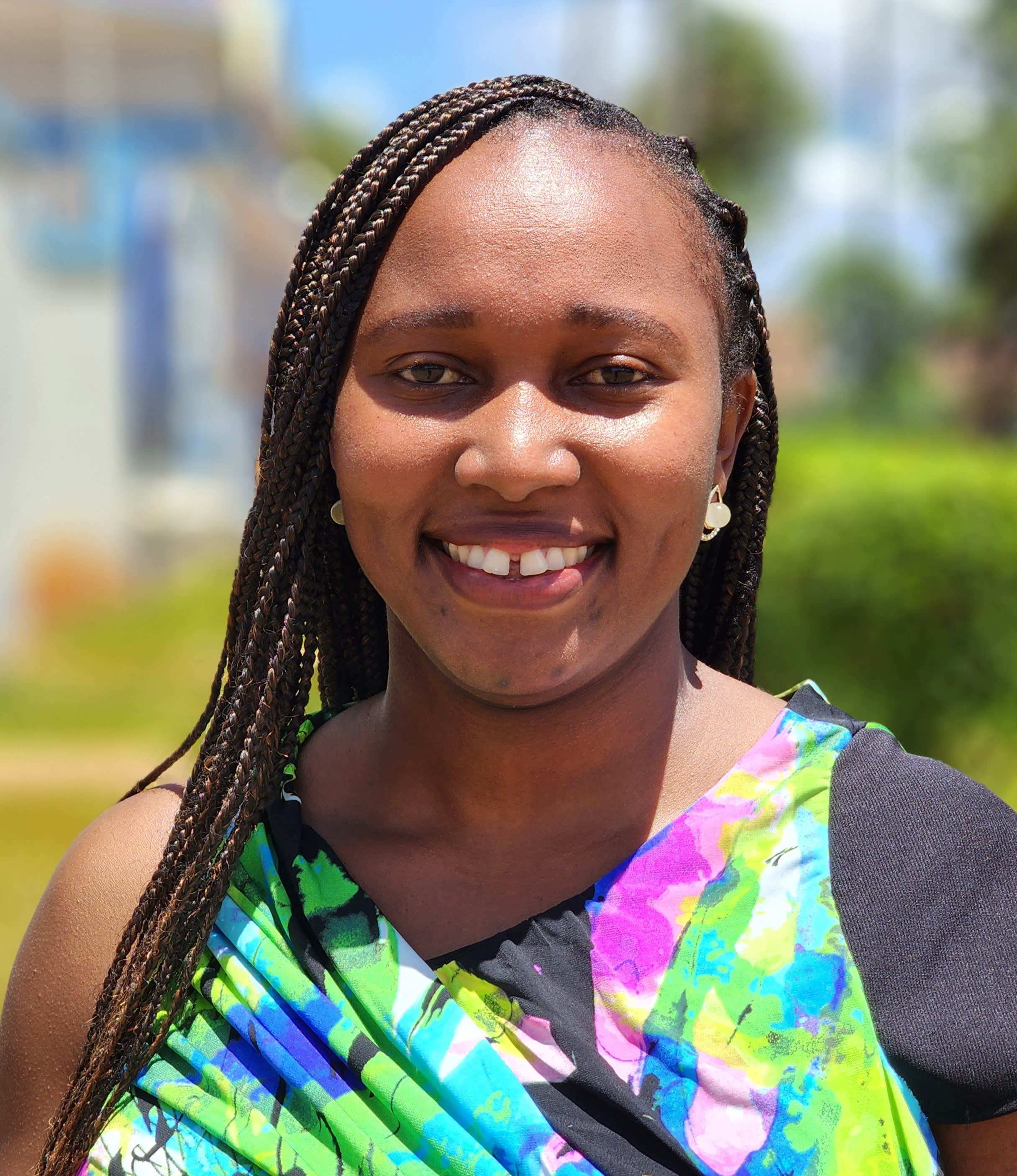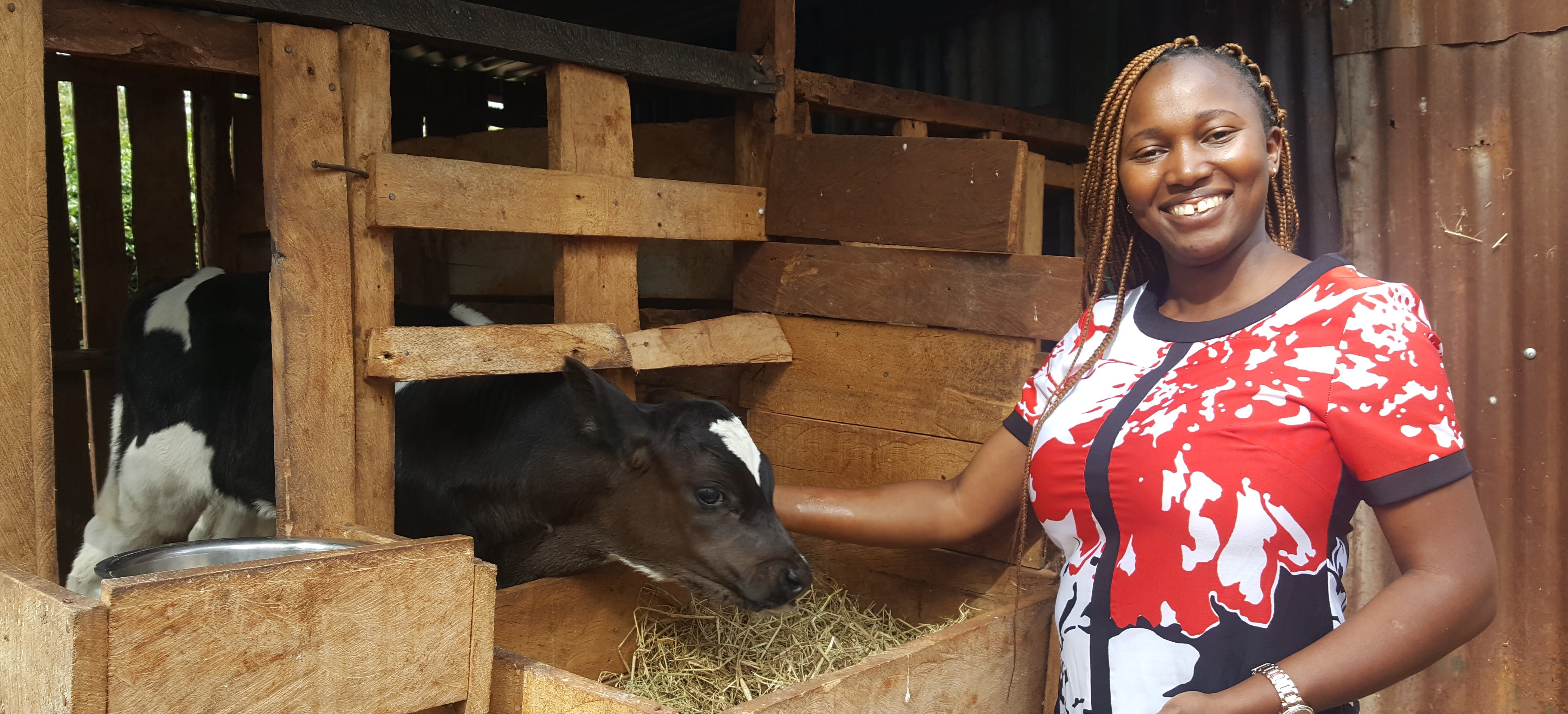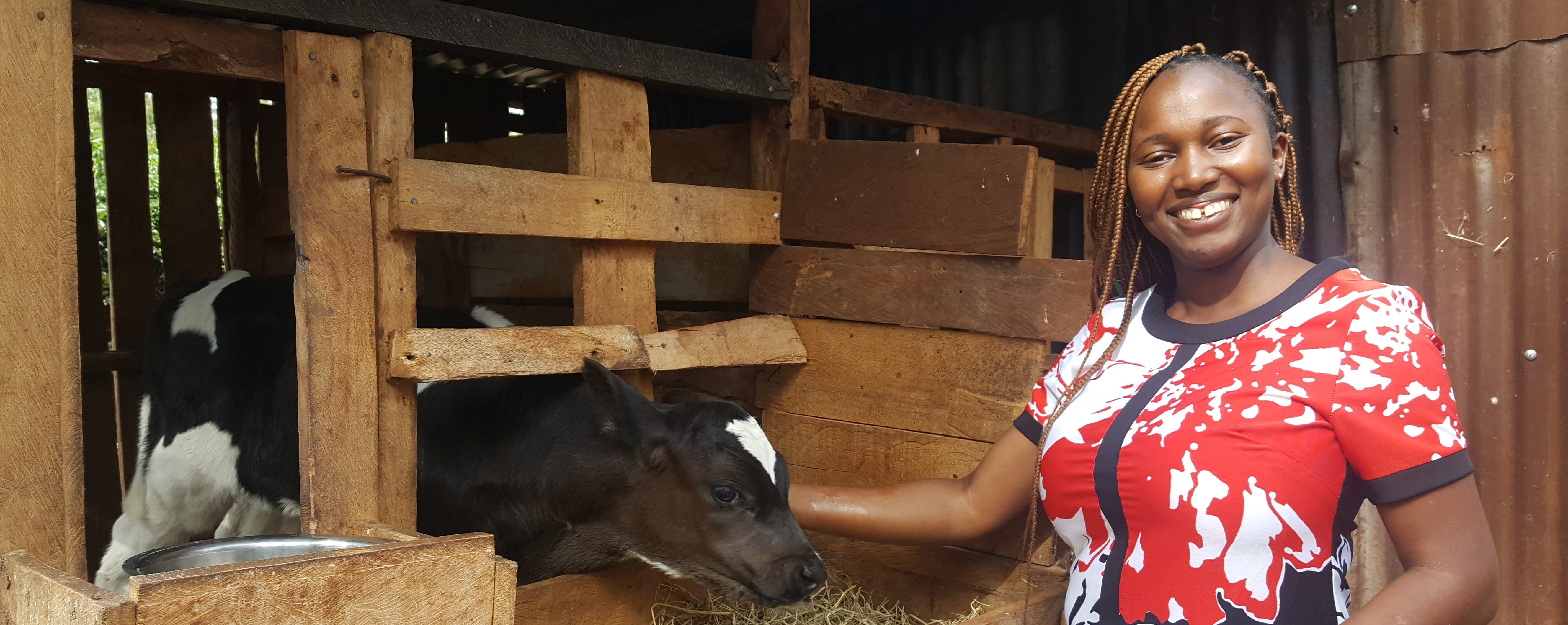To celebrate International Women's Day 2024, we are releasing a week-long series featuring “Women of VWB”. The Women of VWB are effective and powerful change-makers who #InspireInclusion daily. They demonstrate the diversity of VWB thought leadership and expertise around the world, and all that it takes to promote animal, human, and environmental health!
 Today, we introduce you to Esther Mburu, VWB Country Program Manager in Kenya. In this interview, Esther shares her perspectives, her challenges, and her passions for One Health, environmentalism, and community development.
Today, we introduce you to Esther Mburu, VWB Country Program Manager in Kenya. In this interview, Esther shares her perspectives, her challenges, and her passions for One Health, environmentalism, and community development.
Q: How did you become involved with VWB and work in One Health?
A: I hold a Bachelor’s degree in Environmental Studies (Community Development) and a Master of Arts in Monitoring and Evaluation. In 2021, I joined VWB as Kenya Country Coordinator and was promoted to Country Program Manager last year. As an environmentalist, I've always been drawn to holistic approaches, and VWB's emphasis on One Health resonated deeply with me. Addressing the impacts of climate change and fostering community resilience through a collaborative, interdisciplinary approach felt like the perfect fit for my passions and expertise.
Q: How does your work with VWB reflect the One Health approach?
A: My work at VWB is centered around promoting the One Health concept by supporting our partners in Kenya to implement integrated health interventions that consider the interconnectedness of animals, humans, and their environment. One noteworthy project is VETS (Volunteers Engaged in Gender Responsive Technical Solutions), where we've partnered with Canadian specialists to provide technical expertise in areas such as livestock health, zoonotic diseases, and environmental health. By addressing these interconnected issues, we're demonstrating the holistic nature of One Health and its impact on communities.
Q: Why is it important to prioritize the health and well-being of both animals and people?
A: The well-being of animals and people in communities worldwide is intricately linked, especially in rural areas where livelihoods depend heavily on agriculture and livestock. Healthy animals not only contribute to food security and economic stability but also play a crucial role in safeguarding public health by preventing and controlling diseases at the animal-human interface. By prioritizing both animal and human health, organizations like VWB can foster sustainable development and resilience within communities.
Q: Can you share a success or memorable experience from your work with VWB?
A: One of the most rewarding experiences during my time at VWB has been witnessing the tangible impact of our interventions on dairy farmers in Kenya. Through volunteer training initiatives, we've empowered farmers to implement One Health practices, such as proper animal nutrition, healthcare, and hygiene. As a result, we've seen significant improvements in milk production, animal welfare, and economic outcomes for the farmers. It's incredibly fulfilling to see how these integrated approaches can create lasting change within communities.

Q: What is the role of women in driving positive change within the realm of One Health?
A: Women play a pivotal role in driving positive change within the realm of One Health and community-centered animal health systems. As primary caretakers for both human and animal family members, women possess invaluable insights into health-related issues affecting their communities. Their intimate knowledge of local contexts and household dynamics enables them to identify needs, implement interventions, and mobilize resources effectively, ultimately contributing to healthier and more resilient communities.
Q: What challenges have you faced as a woman working in animal health?
A: One of the challenges I've faced as a woman working in One Health and animal health is the misconception that I needed to be a veterinarian to be effective in my role. However, I've overcome this challenge by emphasizing the significance of my background in environmental studies within the One Health framework. By showcasing the value of interdisciplinary perspectives and expertise, I've been able to break barriers and make meaningful contributions to VWB's mission.
Q: How does VWB ensure that its programs are inclusive and equitable?
A: VWB prioritizes inclusivity and equity in its programs by actively engaging with communities, prioritizing gender mainstreaming, and fostering participatory decision-making processes. For example, during our training initiatives with dairy farmers, we ensure that information is shared with both male and female farmers, promoting gender equality and knowledge dissemination within households. Additionally, we support local partners with technical expertise based on their specific capacity needs, ensuring that our interventions are tailored to the diverse needs of communities.
Q: What advice would you give to other women aspiring to pursue careers in international development?
A: My advice to other women aspiring to pursue careers in international development is to embrace opportunities for learning and growth, and to never underestimate the value of your contributions. Trust in your expertise, leverage your unique perspectives, and don't be afraid to challenge stereotypes and carve out your own path towards success.
Q: What role should organizations like VWB will play in addressing emerging challenges related to animal, human, and environmental health?
A: I envision organizations like VWB playing a leading role in advancing One Health solutions and advocating for their adoption at local, national, and global levels. By fostering increased collaborations and implementing evidence-based interventions, we can address emerging challenges such as antimicrobial resistance, food security, and environmental degradation, ultimately creating a healthier and more sustainable world for all beings.
Q: How can individuals contribute to a healthier, more sustainable world for people, animals and the environment?
A: Individuals can support VWB's mission by volunteering their time in our countries of operation, making donations, or advocating for policies that promote One Health. Every contribution, no matter how small, has the power to make a meaningful difference and create a brighter future for both people and animals.





